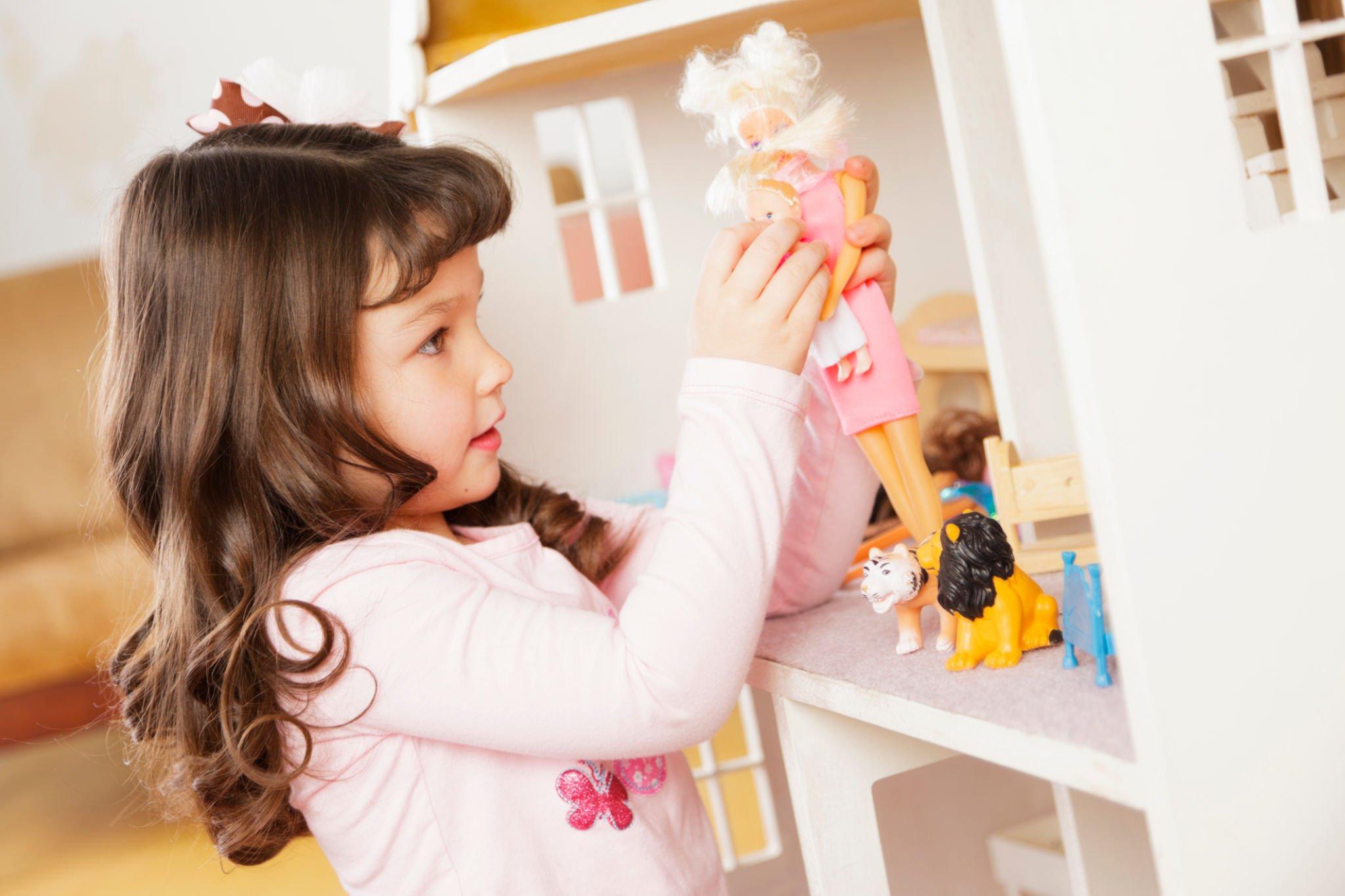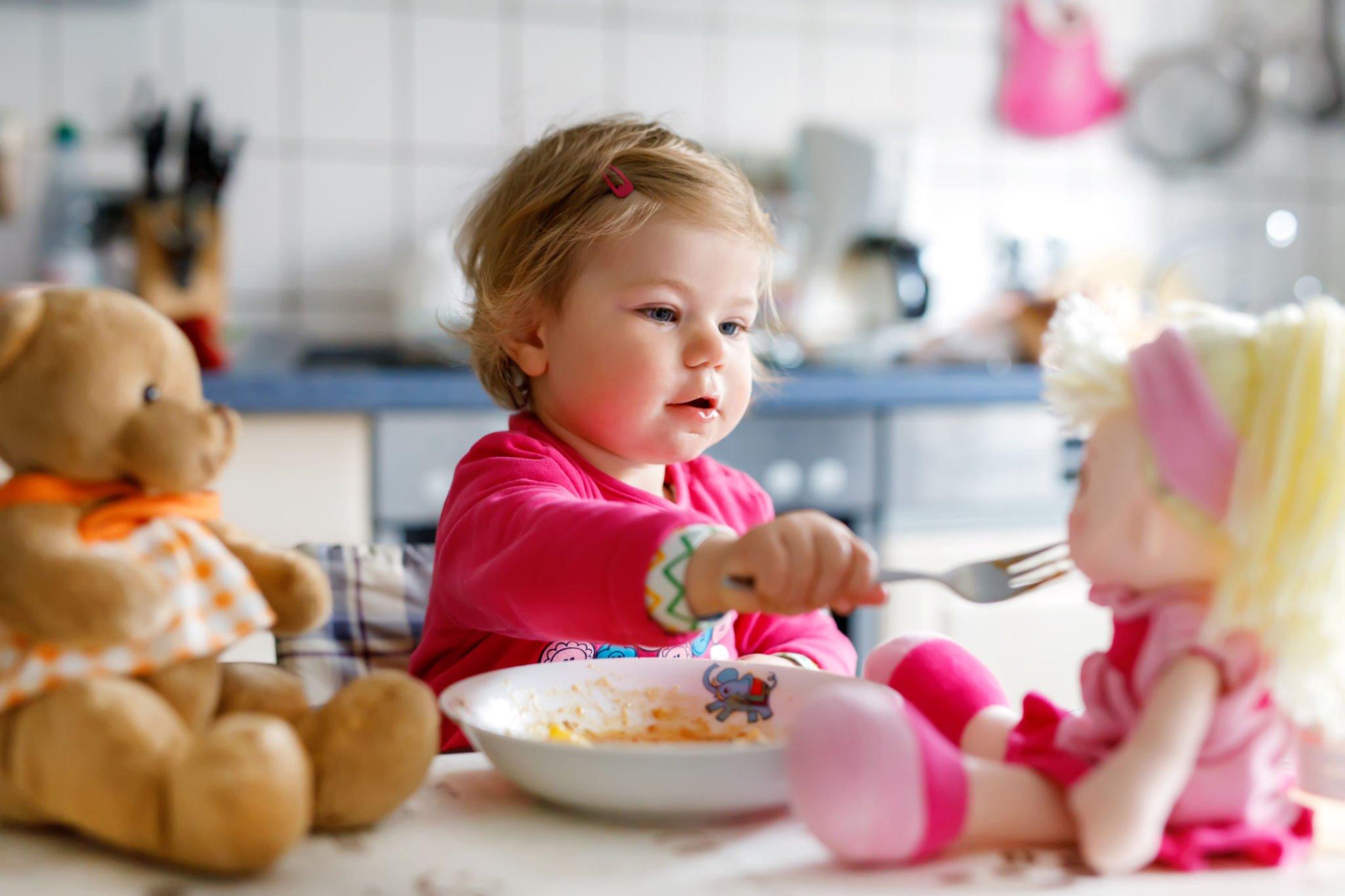Cause we are not only an online shop to sell products, we are here to help you create good memories for your children.
Quick Links
Get In Touch
2024 kidstore. All Rights Reserved
No products in the cart.

In the world of childhood, there exists a magical realm where creativity blossoms, and social skills bloom. This enchanting land is none other than the world of doll play. Beyond their soft exteriors and shiny eyes, dolls hold the key to unlocking a treasure trove of educational benefits for children. Join us on a journey as we explore the wonderful world of doll play and discover how these humble companions foster creativity and social skills in our little ones.
In the world of childhood play, dolls have always been more than just toys. They hold a special place in a child’s heart, becoming trusted companions and confidants. But have you ever wondered why children become so attached to their dolls? What is the psychology behind this attachment?
This article delves into the fascinating world of childhood attachment and the powerful role that dolls play in a child’s emotional development. From the earliest stages of life, children form strong bonds with their dolls, treating them as real friends or even extensions of themselves. These attachments provide a sense of comfort, security, and autonomy for the child.
Dolls play a crucial role in a child’s development, serving as more than just playthings. They offer a safe space for children to explore their emotions, develop their social skills, and practice problem-solving. Through imaginative play, children learn about relationships, express their feelings, and make sense of the world around them.
Research has shown that dolls can enhance a child’s cognitive, emotional, and social development. By engaging in pretend play with dolls, children develop their creativity, language skills, and empathy. They learn to take on different roles and perspectives, which helps them understand and relate to others better.
Dolls also provide a sense of companionship and comfort for children, especially during times of stress or change. They become a source of support and security, allowing children to express their emotions freely and seek solace in their doll’s presence. This emotional connection helps children develop a sense of self and build resilience.
The psychological benefits of dolls extend beyond just providing comfort and companionship. Dolls serve as tools for emotional exploration, allowing children to express and process their feelings in a safe and non-judgmental way. Through role-playing with dolls, children can act out scenarios, experiment with different emotions, and find ways to cope with challenging situations.
Research has shown that doll play can enhance a child’s emotional intelligence, which is the ability to recognize, understand, and manage their own emotions, as well as empathize with others. By engaging with dolls, children learn to recognize and label emotions, develop empathy, and practice problem-solving skills.
Dolls also help children develop their communication and language skills. When engaging in pretend play with dolls, children engage in conversations, negotiate roles, and develop their vocabulary. This promotes language development and enhances their ability to express themselves verbally.
Attachment theory, developed by psychologist John Bowlby, explains how children form emotional bonds with their caregivers. These early attachments serve as a foundation for future relationships and have a profound impact on a child’s emotional well-being.
Dolls play a significant role in the formation of these attachments. Children often treat their dolls as if they were real, projecting their emotions onto them and seeking comfort and reassurance. This helps children develop a secure attachment style, where they feel safe, loved, and supported.
Attachment to dolls also helps children explore their independence and autonomy. By caring for their dolls, children learn to take on caregiving roles, make decisions, and develop a sense of responsibility. This fosters their self-confidence and independence, allowing them to navigate the world with a greater sense of agency.

Emotional intelligence, or EQ, is a critical skill that helps individuals navigate their emotions, build relationships, and succeed in various aspects of life. Dolls play a significant role in the development of emotional intelligence in children.
Through doll play, children learn to recognize and regulate their emotions. They can express their feelings through their dolls, which helps them develop emotional self-awareness and learn coping strategies. By engaging in role play with their dolls, children also develop empathy, as they imagine themselves in different situations and understand how others might feel.
Dolls provide a safe space for children to practice problem-solving and conflict resolution. When faced with challenges during play, children learn to negotiate, compromise, and find solutions. This helps them develop their social skills and learn how to navigate real-life situations.
Dolls have long been associated with girls, while action figures and cars are often marketed towards boys. These gender stereotypes can limit children’s play options and reinforce societal expectations of gender roles.
However, it is crucial to challenge these stereotypes and provide children with a wide range of toys, including dolls, regardless of their gender. Doll play offers numerous benefits for both boys and girls, promoting empathy, emotional expression, and social skills. Allowing children to explore different types of play encourages their holistic development and fosters inclusivity.
Doll therapy is a therapeutic approach that uses them to help individuals, primarily older adults with dementia or Alzheimer’s disease, reconnect with their emotions and memories. This therapy can also be effective for children with emotional or behavioral challenges.
Dolls provide a source of comfort and familiarity, allowing individuals to engage in nurturing and caregiving behaviors. This can help reduce anxiety, increase feelings of security, and provide a sense of purpose. Doll therapy has been shown to improve mood, decrease agitation, and enhance overall well-being.
It is important to note that doll therapy should be implemented by trained professionals and used as part of a comprehensive treatment plan. When used appropriately, dolls can be powerful tools for emotional healing and connection.
Choosing the right doll for your child is essential in fostering a meaningful attachment. Consider the following factors when selecting a doll:
Age-appropriateness:
Choose a doll that is suitable for your child’s developmental stage.
Material:
Opt for dolls made from safe and durable materials, such as BPA-free plastic or organic cotton.
Diversity:
Look for dolls that represent diversity in terms of ethnicity, abilities, and body types.
Interactivity:
Consider dolls that offer interactive features, such as crying, talking, or moving, to enhance engagement.
2024 kidstore. All Rights Reserved